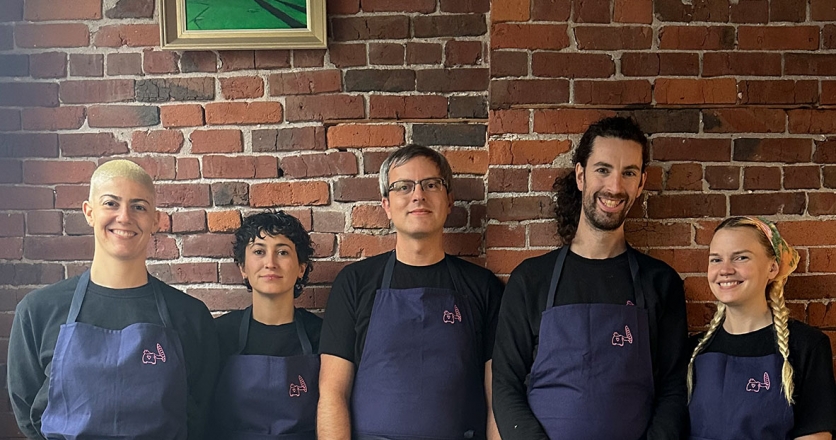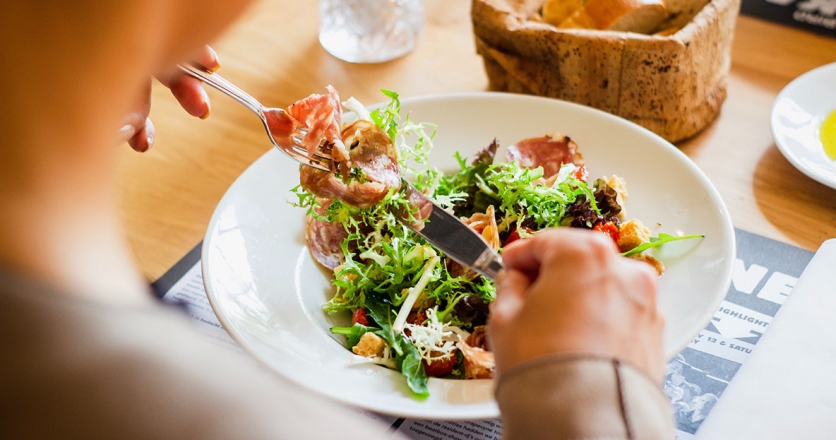Méli-Mélo - January 2024
A Winter Walk in the Woods
Julia Alards-Tomalin happily admits she can’t go two minutes walking in a forest without stopping to check out a beautiful tree bud, and she has become somewhat of a twig photographer.
“One of the things that always strikes me is just how beautiful and unique they can be,” Alards-Tomalin says. “Things like dogwood buds, they’re just so magical-looking; they look like little tiny cauliflowers, and red maple flower buds look like sea creatures. There’s just this amazing beauty in these twigs that you would not expect.”
Alards-Tomalin’s fascination with twigs started when she was a forestry student at BCIT years ago and she took a plant identification course. It was the dead of winter and nothing looked quite like it did in the books that rely on foliage for identification. Years later when she returned to the school as a forest resource faculty member, she decided to recruit students to help create an open-source guide that focuses solely on identifying plants in the winter.
“When I came back I wished there was something that was a little more user-friendly,” Alards-Tomalin says. “BCIT offered these open education grants and I thought, well, let's see if we can make the book together, because there's no way I can make it alone. It just wouldn't have been possible to do it without everyone working together.”
It took 190 students and faculty across different departments three years to come up with Buds, Branches and Bark: A Guide to Winter ID in the Pacific Northwest. The comprehensive guide features photos and descriptions of shrubs and trees, as well as tips on how to become more observant in the forest.
The guide is the definition of a collaborative effort, and it’s Alards-Tomalin’s open-source approach that helped bring together so many people from different BCIT faculties.
“With open pedagogy, the group doesn't just stop with the one classroom. It's every year the next group and the next group building on top of the previous year's work,” Tomalin-Alard says. So instead of hiding what other people have done before, you're looking at it, you're embracing what was created before and building on it each time.”
Embracing collaboration paid off and she was recognized with an Open Pedagogy Award in the 2023 Global Education Awards for Excellence.
Being open source means the guide book is widely available online for anyone to use and can be found in BCIT’s Open Education Collection at https://circuit.bcit.ca/repository/islandora/object/repository:2056
Tommy's Whole Grain
Tommy Aird (former head baker at Flourist) is set to open Tommy’s Whole Grain in the Downtown Eastside this winter with fellow baker and business partner Charlie-May Bingham. The bakery will offer fine sourdough breads, pastries, cakes, croissants and more, all made with whole grain flour.
“Our aim is to create the best-tasting breads and pastries while reducing food waste and increasing the nutrient density of our food,” Aird says.
As the name suggests, whole grain flours have been ground from the entire grain, leaving much of its nutritional value and fibre content intact, as opposed to conventional flours, which have had their germ and bran — and much of their nutrients and fibre — removed.
“We believe the only way to meet emission targets and properly respond to the climate crisis is to ensure, as food producers, we aren’t discarding the most nutritious components of our main food source due to an archaic industrialized practice.”
Aird’s vision is to partner with regional small-scale organic grain growers, such as Cedar Isle Farm in Agassiz, in a bid to ensure the food system is equitable and resilient.
Tommy’s Whole Grain | @tommyswholegrain
Dry January
It’s the time of year when we collectively take a break from over-indulging, and for many that means forgoing booze. Fortunately, for those doing Dry January, there are fantastic local, non-alcohol options on the market. If you’re a beer lover, check out Nonny non-alcoholic beer for great takes on the classics, such as a pale ale and Czech pilsner. Strange Fellows also released Nevertheless, a pale ale with a big bold flavour and lots of hops. If you’re more of a rosé-all-day drinker, try Ones+ non-alcoholic wines. They recently released convenient cans of their sparkling rosé and sparkling cabernet sauvignon. For those who love a good cider, Sea Cider Farm & Ciderhouse released their “Temperance” line of non-alcoholic ciders, which includes an apricot and elderflower cider, a blackberry with lavender and mint cider and cherry cider.
Dine Out Vancouver Returns
Everybody’s favourite fixed menu festival is running from January 17 to February 4 throughout Vancouver and the Lower Mainland. Each year, more than 300 restaurants sign up to offer fixed-price menus to keep seats warm during what is traditionally the slowest time of year. The menus typically run from $20-34, $35-50 and $54-64, and each includes a multi-course meal, whether you are dining at a fine dining establishment or family restaurant. Reservations go live on Tuesday, January 9 and they go quick, so check in dineoutvancouver.com








